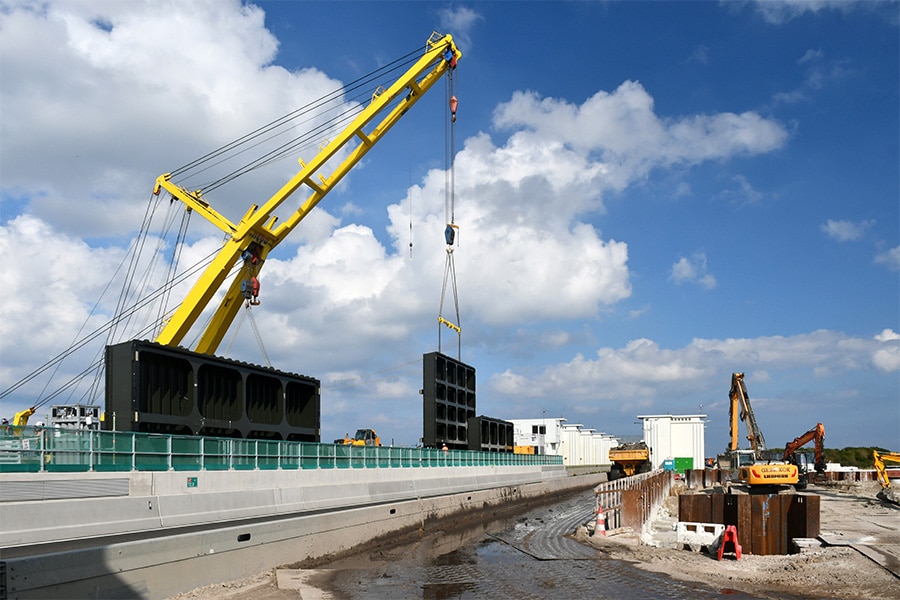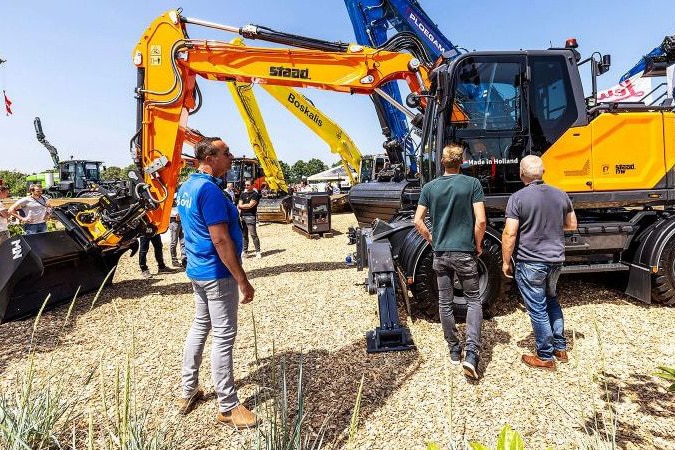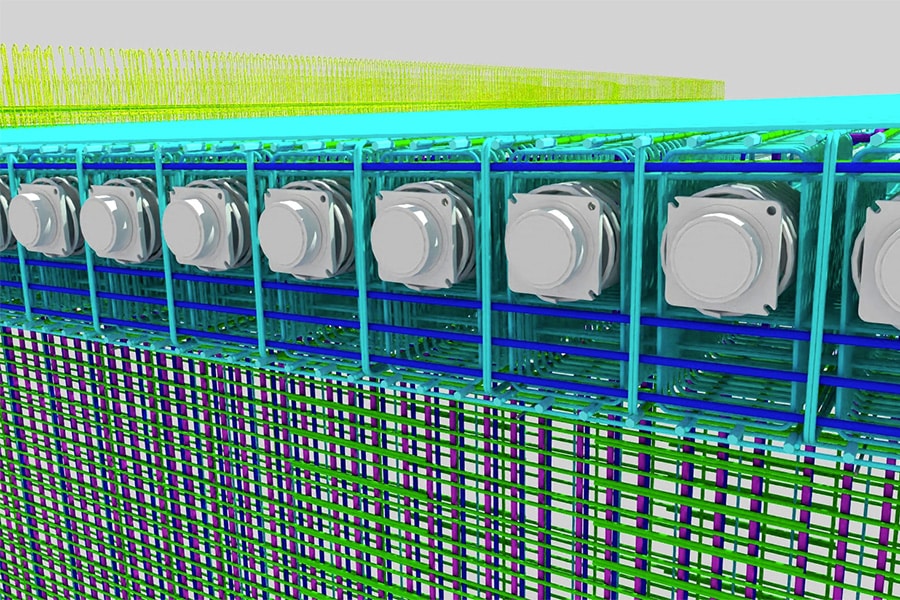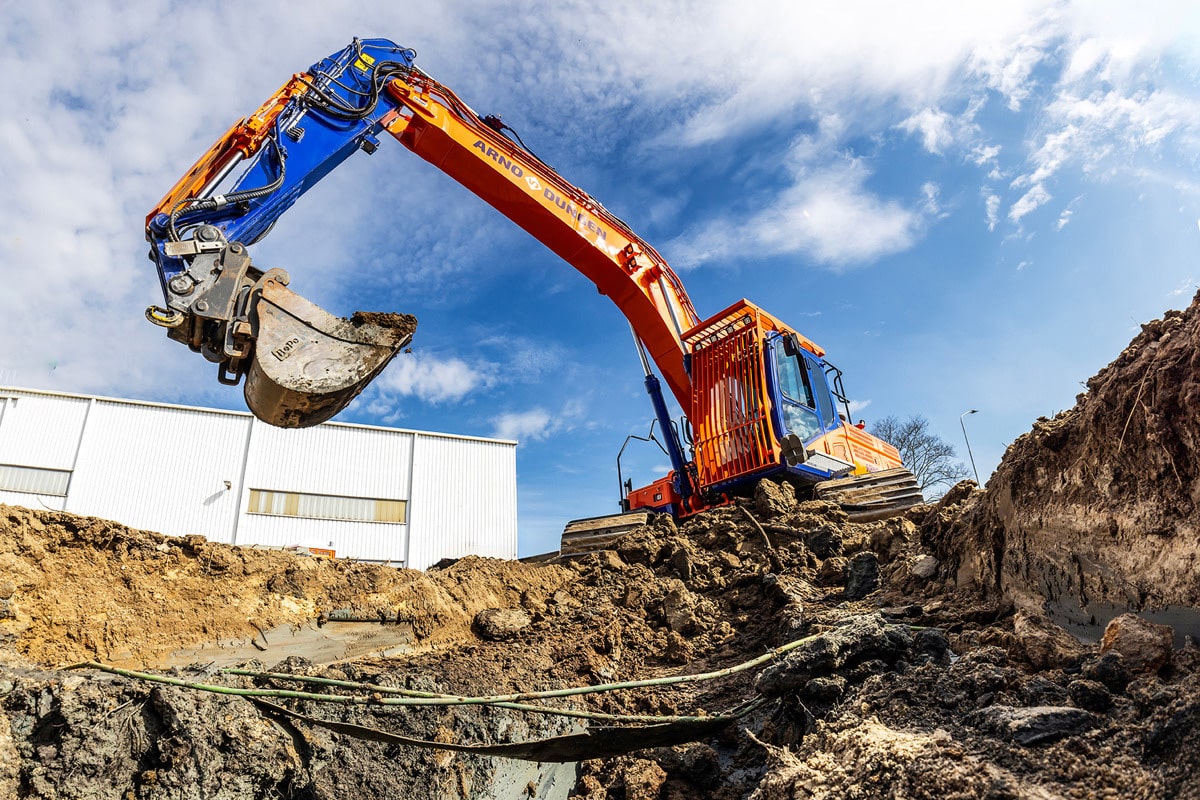
Terneuzen New Lock | English hounds prevent construction stop on Zeeland plain
Sometimes nature needs a helping hand to help mankind move forward. Such is the case with the construction of the New Terneuzen Lock. In order not to impede the progress of the work, it is important that no birds breed in the area around the construction. Birds are protected by law and may not be disturbed. Breeding birds can therefore halt construction activities.
To keep this legally protected species from breeding elsewhere, the Sassevaart contractor combination chose an animal-friendly method; the birds are chased away using specially trained hunting dogs. We speak with Falco Schoemaker, owner of Falco Natuurbeheer, which specializes in keeping sites in the Netherlands and Belgium free of breeding birds.
English pointers and setters; at your service!
"To keep (construction) sites brood-free in a natural and animal-friendly way, we use English hunting dogs: pointers and setters, as well as trained birds of prey, such as falcons. These are natural enemies of the birds that we like to see leave temporarily during the work. In the case of the New Lock Terneuzen, we only deploy the dogs, six of them to be exact," Schoemaker opens the conversation. "English pointers and setters belong to the so-called 'upright hunting dogs' and have been bred for generations to track, point and chase birds. Back in the day, these dogs were used for hunting with falcons. We still make use of this unique and instinctive trait of the dogs today."
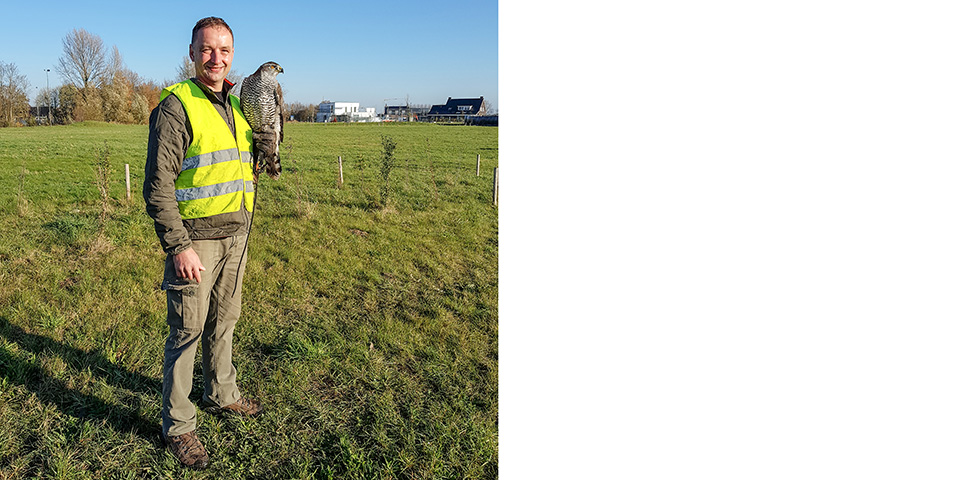
Is it a coincidence that Falco, with such a first name, became the falconer of choice? "Apparently it had to be that way," he says, laughing. "After all, Falco is Latin for 'falcon.' On top of that, I was born in the Chinese year of the dog. I can't imagine any other profession."
The natural enemy as savior
"I know the area around the Nieuwe Sluis Terneuzen very well. Knowing that in mid-February birds return from the south to breed in this very area, I sounded the alarm at Sassevaart," Schoemaker outlines. "When a bird finds two days of rest after returning, it begins making preparations for the breeding season. So the key is to disrupt the winged friends from day one. Sassevaart recognized the need and the contract was awarded. From mid-February through the end of July, therefore, you can find our dogs in the field."
Birds have an innate fear of wolves and birds of prey, Schoemaker shares. "Since the dog is related to the wolf, it is seen by the birds as a natural enemy. Therefore, habituation never occurs to the birds, as it does with the use of gas cannons and laser equipment. I have a team of people around me who are all falconers and dog lovers. Together we patrol the area around the New Lock Terneuzen."
The knife cuts to two sides
"The birds will be chased to other areas without killing or injuring them. In doing so, we serve the progress of the construction work and ensure that the birds can nest undisturbed elsewhere. So, man and animal both win," Schoemaker outlines. "Sassevaart has even gone so far as to establish, not too far away from the New Lock Terneuzen, a special nesting area. The area is completely fenced off, nesting can take place here safely and undisturbed."
